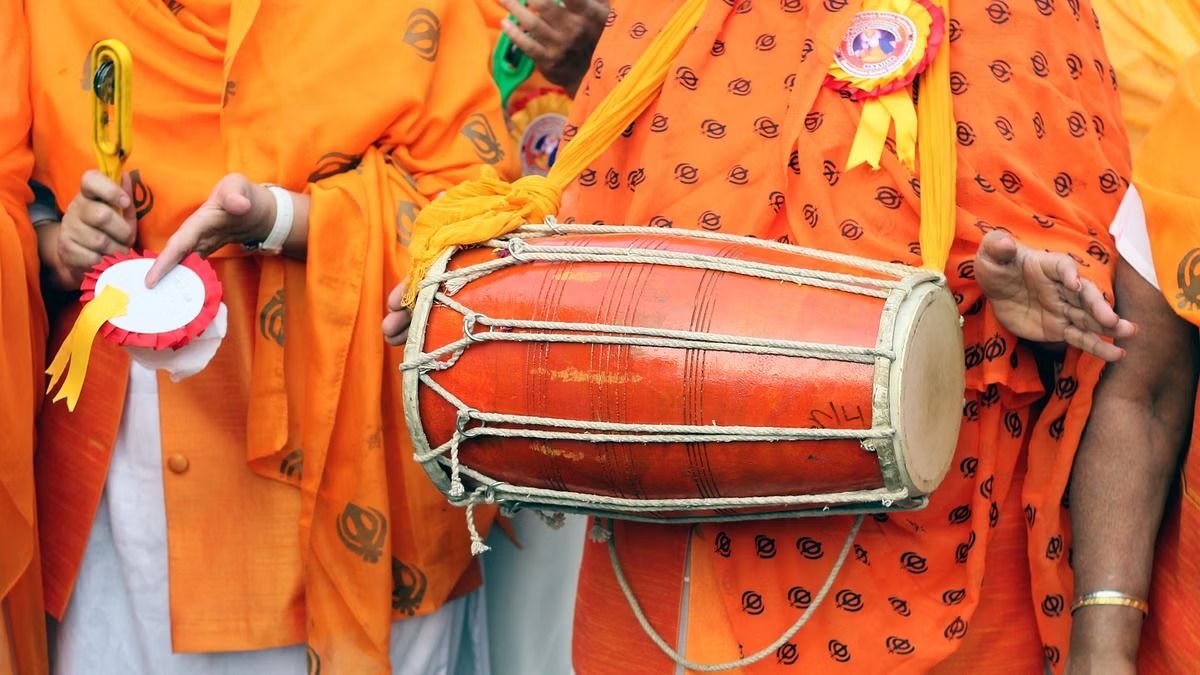London: For the first time in the UK, Kirtan is recognised as part of the graded music examination system, with students able to access a formal syllabus and texts of ‘Sikh Sacred Music’ from Friday.
Birmingham-based musician and academic Harjinder Lallie has spent years ensuring that kirtan takes its rightful place alongside Western classical music and ensuring that traditional musical skills are preserved for future generations.
Kirtan, the chanting of shabads or scriptures from the sacred ‘Guru Granth Sahib’, is a fundamental method of devotion and praise in the Sikh faith.
The London-based Music Teachers Board (MTB) will now offer Sikh sacred music as part of its globally recognised Grade 8 music exams, giving students the opportunity to earn Universities and Colleges Admissions Service (UCAS) points for senior grades 6 to 8, which are then recognised for university admissions.
“Our aim with all this is to ensure that we preserve our heritage for future generations,” said Dr Lallie, a professor at the Gurmat Sangeet Academy in the UK.
“It took ten years of hard work to get the curriculum accepted and launched. It is a great honour, but I am also proud that all that hard work has paid off. That the Western public is paying close attention to what we have done and, most importantly, can appreciate that Sikh kirtan is no less than, for example, the violin, piano or any other contemporary Western musical genre,” he said.
The Sikh sacred music curriculum comes with recognition of five Indian string instruments: dilruba, taus, esraj, sarangi and saranda.
As Lallie explains, almost 550 years ago kirtan was performed on tanti saaz or stringed instruments. Over time, particularly in the last 150 years, stringed instruments were replaced by the harmonium.
“We have lost a lot of our heritage during this time. Over the last 25 years, there has been a huge campaign driven by groups like the Gurmat Sangeet Academy in the UK to bring back traditional instruments. This examination system requires the candidate to do kirtan on traditional string instruments and not the harmonium. By doing this, we will encourage more children to reconnect with their roots and heritage,” Lallie said.
The development of the new examination by MTB has been carried out in collaboration with a South Asian Music Committee, made up of representatives and organisations that are at the forefront of the teaching of Sikh sacred music throughout the world.
“It is really nice to see that people learning Sikh sacred music will now be recognised for their hard work and receive grades for what they are learning, just like people learning other musical instruments such as the piano, violin or guitar,” said David Kesel, Managing Director of MTB.
For the exam board, which has pioneered innovation and digital technologies in music examinations, this project is an important step in a broader mission to culturally diversify music education to celebrate musical traditions across cultures.
Kesel explained: “As one of the UK’s leading exam boards, with schools, teachers and students using us in 50 different countries, including India, a big part of our mission is to diversify music and we are doing a lot of cutting-edge things to try and promote diversity and musical learning.
“There has been quite a focus on Western classical and contemporary music, which has been offered all over the world, so we are the first board to have also launched books on Indian pop and Bollywood music, creating an Indian curriculum with Indian content.” Kirtan is a fundamental part of Sikh identity, and having ‘Sikh Sacred Music’ recognised as an examination subject with UCAS points is something much celebrated, said Jasvir Singh, chairman of community group City Sikhs in the UK.
“It gives this form of spiritual music the academic value it deserves in the UK. I hope this will lead more British Sikhs to explore their heritage with pride, as well as helping them to gain the results they need to continue their studies and beyond,” he said.
The launch of this new music qualification is just the beginning; work will begin on an accredited tabla exam early next year, with the sitar, sarod and other traditional South Asian musical instruments to follow.
Disclaimer:
The information contained in this post is for general information purposes only. We make no representations or warranties of any kind, express or implied, about the completeness, accuracy, reliability, suitability or availability with respect to the website or the information, products, services, or related graphics contained on the post for any purpose.
We respect the intellectual property rights of content creators. If you are the owner of any material featured on our website and have concerns about its use, please contact us. We are committed to addressing any copyright issues promptly and will remove any material within 2 days of receiving a request from the rightful owner.

